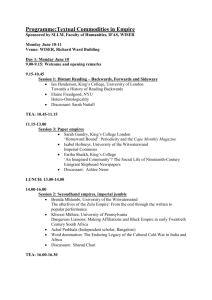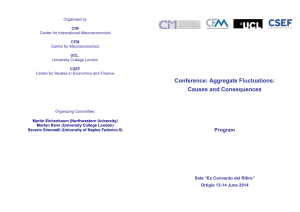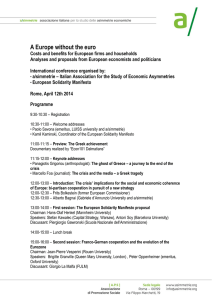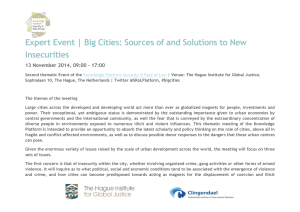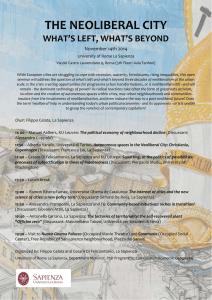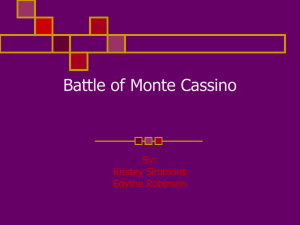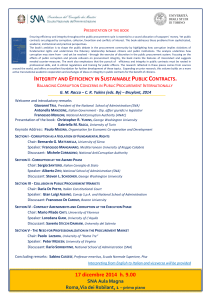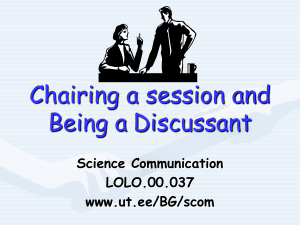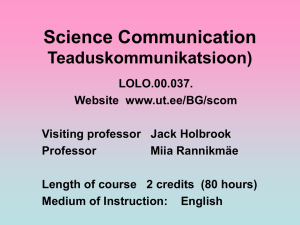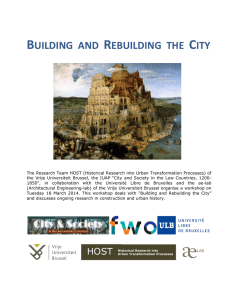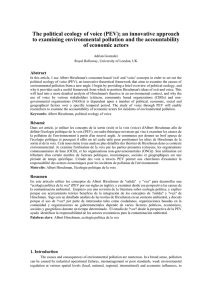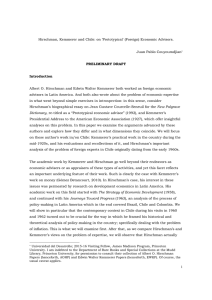The gift of (self)subversion
advertisement
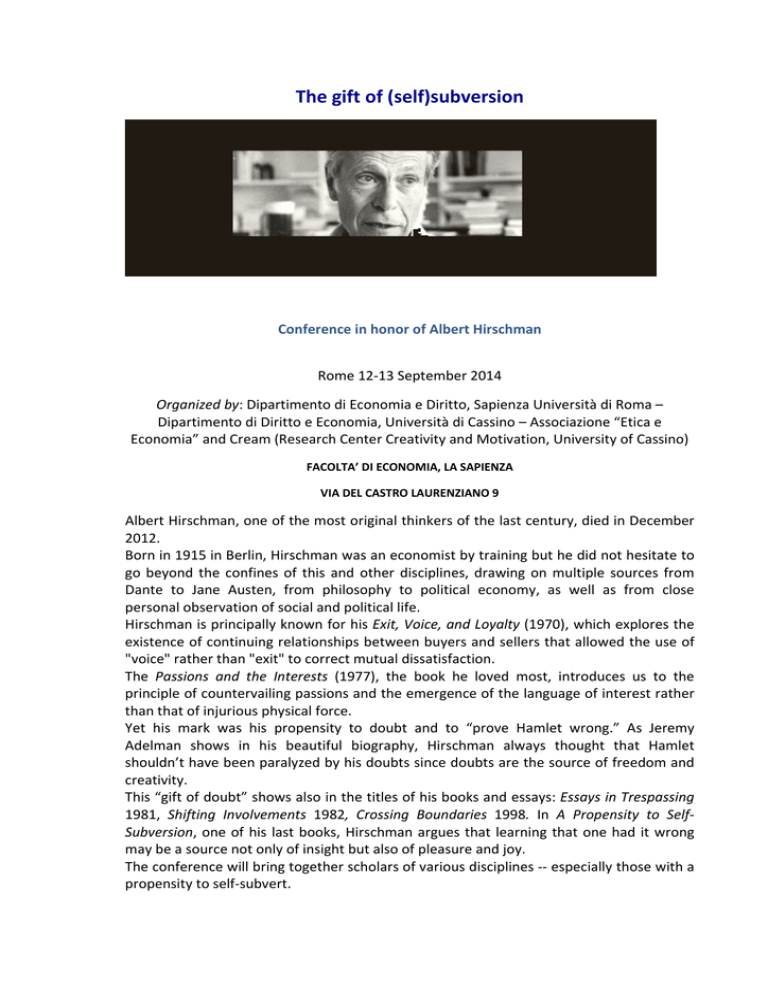
The gift of (self)subversion Conference in honor of Albert Hirschman Rome 12‐13 September 2014 Organized by: Dipartimento di Economia e Diritto, Sapienza Università di Roma – Dipartimento di Diritto e Economia, Università di Cassino – Associazione “Etica e Economia” and Cream (Research Center Creativity and Motivation, University of Cassino) FACOLTA’ DI ECONOMIA, LA SAPIENZA VIA DEL CASTRO LAURENZIANO 9 Albert Hirschman, one of the most original thinkers of the last century, died in December 2012. Born in 1915 in Berlin, Hirschman was an economist by training but he did not hesitate to go beyond the confines of this and other disciplines, drawing on multiple sources from Dante to Jane Austen, from philosophy to political economy, as well as from close personal observation of social and political life. Hirschman is principally known for his Exit, Voice, and Loyalty (1970), which explores the existence of continuing relationships between buyers and sellers that allowed the use of "voice" rather than "exit" to correct mutual dissatisfaction. The Passions and the Interests (1977), the book he loved most, introduces us to the principle of countervailing passions and the emergence of the language of interest rather than that of injurious physical force. Yet his mark was his propensity to doubt and to “prove Hamlet wrong.” As Jeremy Adelman shows in his beautiful biography, Hirschman always thought that Hamlet shouldn’t have been paralyzed by his doubts since doubts are the source of freedom and creativity. This “gift of doubt” shows also in the titles of his books and essays: Essays in Trespassing 1981, Shifting Involvements 1982, Crossing Boundaries 1998. In A Propensity to Self‐ Subversion, one of his last books, Hirschman argues that learning that one had it wrong may be a source not only of insight but also of pleasure and joy. The conference will bring together scholars of various disciplines ‐‐ especially those with a propensity to self‐subvert. PROGRAM September 12 Sala del Consiglio, Palazzina della Presidenza II floor 15,15‐ Welcome address Chair: Marina Bianchi 15,30 ‐ Ruth Grant, Duke University Homo Politicus: Reflections on The Passions and the Interests Discussant: Bruna Ingrao 16,10 ‐ Neil De Marchi, Duke University Development: Some Uncommon Insights and the Orthodoxies they challenged Discussant: Steve Grant 16,50 ‐ Coffee Break Chair: Maurizio Franzini 17,00 ‐ Andrea Ginzburg, University of Modena The actuality of a dissenter: the idea of development in Hirschman's writings Discussant: Claudio Sardoni 17,40 ‐ Pier Giorgio Ardeni, University of Bologna Being a consultant 'expert' in a developing country: the legacy and lessons of A. Hirschman Discussant: Francesco Ferrante 18,20 ‐ General discussion 19,00 – End of the sessions September 13 Sala del Consiglio, Palazzina della Presidenza II floor Chair: Pier Giorgio Ardeni 9,00 ‐ Shaun Hargreaves Heap, Kings College London Good and bad’ (not ‘good or bad’): Albert Hirschman as a behavioural economist Discussant: Giovanni Di Bartolomeo 9,40 – Marina Bianchi, University of Cassino Three ways of complicating economic theory. De valoribus est disputandum Discussant: Sergio Nistico’ 10,30‐ Coffee Break Chair: Neil De Marchi 11,00 ‐ Peter John, University College London Exit and voice in political science and public policy Discussant: Mario Pianta 11,40 ‐ Maurizio Franzini, Sapienza University of Rome Efficient institutions: the role of exit and voice. Discussant: Andrea Pezzoli 12,20 ‐13,00 ‐ General discussion Organizers: Marina Bianchi, Department of Economics and Law, University of Cassino and Maurizio Franzini, Department of Economics and Law, Sapienza, University of Rome.
